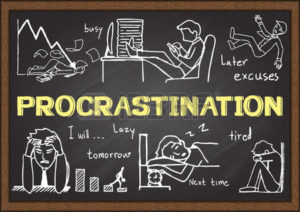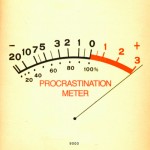Sad movies are popular. People read sad novels and get in touch with the feeling. However, in our daily lives, sadness is a bittersweet memory of what once was.
This normal and natural emotion accompanies a loss of something or someone you value. It can be brief. It can linger. Sadness can reappear on the date of a loss, from looking at a picture, a situation, a passing thought—practically anything that you associate with the loss that holds meaning for you.
It is because we form attachments with people, with animals, and with ideals and places, that sadness carries through our lives. The size of the loss doesn’t matter. A child who experiences the loss of a goldfish weeps at a loss that others might find trivial. It’s not trivial. This loss is as real as any other is.
Losses come in different ways at different times. The loss of a tradition can evoke sadness. You may miss and feel sad when your children grow to adulthood and leave home to live on their own. The death of a close friend may leave you with a lingering feeling of loss. All sad. All inevitable.
When my childhood friend Al’s teen-aged daughter died, I saw my six-foot-five, 350-pound friend collapse in sadness and despair. He asked, “How will I ever get through this?” There was no answer. There was only time. I supported him as best I could. I wrote a poem in her memory. I wished I could have done more.
Within the year of his daughter’s death, Al died from cancer. I felt a great loss. Sadness still awakens within me when I think of happier times. When I visit his grave, I bury an old coin in the ground. Silly? Perhaps. Al loved to collect old coins. There is nothing wrong with feeling sentimental.
Sadness is a tribute. If there were no meaning to our relationships, there would be no sad feelings. There are sad times because there were once happy times, cherished times, and valued attachments.
Sadness reminds us that we are human. It is part of our biology and our heritage. If you accept that reality, you may find that you don’t go through phases of denial, anger, and resignation following a major loss. You may avoid depression. Acceptance of sadness is enough. Meanwhile, write poetry. Organize a march to raise money for a cause. Paint. Walk. Solve a problem.
Loss. Sadness. Time to grieve. Time to heal. Time. Time. Time. It can go so slowly. There is acceptance. There is allowance. There is working through the process of loss. However, in situations where the loss came from a tragedy that is followed by depressive thinking and depression, it can take considerable time and work to come to grips with the experience.
Bob’s fiancée, Jane, died hours before their wedding. It was a tragic automobile accident. Bob felt numbed and grief stricken. Three years after this tragic event, Bob continued to feel great guilt and depression. He told himself, “If only I had phoned Jane before she left, she would have gone through the intersection at another time.” He told himself, “I can’t live without her.” He believed, “I will never find anyone like Jane.” A cloud of hopelessness covered his life, and his depressed mood was both deep and painful.
Bob stopped doing what he once enjoyed. An avid tennis player, Bob let his racquet gather dust. There were no more dinners with his friends. As he drew within himself, he withdrew from his family. Previously a successful accountant, Bob quit. Thereafter, he mostly did odd jobs, such as buffing automobiles.
Bob felt overwhelmed by the details of daily living. His mood was despondent. He awakened in the middle of the night with a frightening image of the accident that took Jane’s life. He compounded his profound sadness with defeatism, pessimism, and self-loathing.
As he learned to defuse the negativity in his thoughts, and to accept his lack of control over Jane’s tragic death, Bob’s inner turmoil softened to sadness. Months later, he resumed his accounting career. At the time of this writing, he is happily married with three children. His family is a source of great joy. Has he forgotten about Jane? Jane lives on as a cherished memory.
Loss is inevitable. Sadness is inevitable. But, depression is not inevitable. Sadness, you accept. You deal with depression.
When sadness changes to depressive darkness, it’s time to look for a flashlight.
By Bill Knauss, Ph.D.


 Procrastinators have some big false assumptions about how work works. They assume that really productive people are always in a positive, energetic frame of mind that lets them jump right into piles of paper and quickly do what needs to be done, only emerging when the task is accomplished. On the contrary, motivation follows action instead of the other way around. When we make ourselves face the task ahead of us, it usually isn’t as bad as we think, and we begin to feel good about the progress we start making. Work comes first, and then comes the positive frame of mind. Closely allied to this misunderstanding about motivation is the idea that things should be easy. Depressed people assume that people who are good at work skills always feel confident and easily attain their goals; because they themselves don’t feel this way, they assume that they will never be successful. But again, most people who are really successful assume that there are going to be hard times, frustrations, and setbacks along the way. Knowing this in advance, they don’t get thrown for a loop and descend into self-blame whenever there’s a problem. If we wait until we feel completely prepared and feeling really motivated, we’ll spend a lot of our lives waiting. See my page on developing greater
Procrastinators have some big false assumptions about how work works. They assume that really productive people are always in a positive, energetic frame of mind that lets them jump right into piles of paper and quickly do what needs to be done, only emerging when the task is accomplished. On the contrary, motivation follows action instead of the other way around. When we make ourselves face the task ahead of us, it usually isn’t as bad as we think, and we begin to feel good about the progress we start making. Work comes first, and then comes the positive frame of mind. Closely allied to this misunderstanding about motivation is the idea that things should be easy. Depressed people assume that people who are good at work skills always feel confident and easily attain their goals; because they themselves don’t feel this way, they assume that they will never be successful. But again, most people who are really successful assume that there are going to be hard times, frustrations, and setbacks along the way. Knowing this in advance, they don’t get thrown for a loop and descend into self-blame whenever there’s a problem. If we wait until we feel completely prepared and feeling really motivated, we’ll spend a lot of our lives waiting. See my page on developing greater 








